Fuel Hose/Pipes Replacement - Chassis Front Pipes
Removal Procedure
Important: Clean all the fuel pipe connections and surrounding areas before disconnecting the pipes in order to avoid possible fuel system contamination.
- Relieve the fuel system pressure. Refer to the Fuel Pressure Relief .
- Disconnect the fuel feed and return pipes (1) at the fuel rail. Refer to Metal Collar Quick Connect Fitting Service .
- Disconnect the evaporative emission (EVAP) canister purge tube (3).
- Cap the fuel rail and EVAP pipes.
- Raise and suitably support the vehicle. Refer to Lifting and Jacking the Vehicle in General Information.
- Remove the fuel pipe bracket nut (2).
- Remove the fuel pipe bracket from the bellhousing stud.
- Remove the fuel hose/pipe clip from the bracket on the automation transmission.
- If equipped with 4-wheel drive (4WD), remove the fuel hose/pipe clip from the bracket on the transfer case.
- Remove the front fuel tank. Refer to Fuel Tank Replacement .
- Disconnect the front fuel hoses/pipes from the rear fuel hoses/pipes. Refer to Plastic Collar Quick Connect Fitting Service .
- Cap the rear fuel hoses/pipes
- Remove the fuel hose/pipe bracket nuts.
- Remove the front fuel hose/pipe assembly.
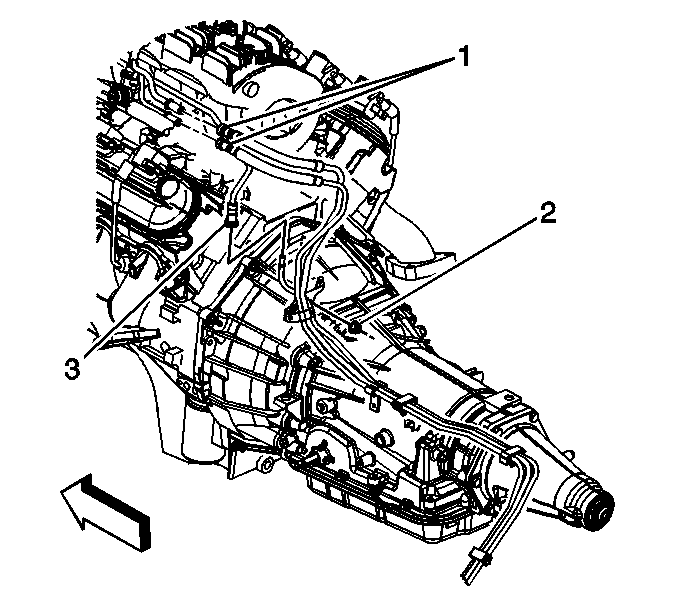
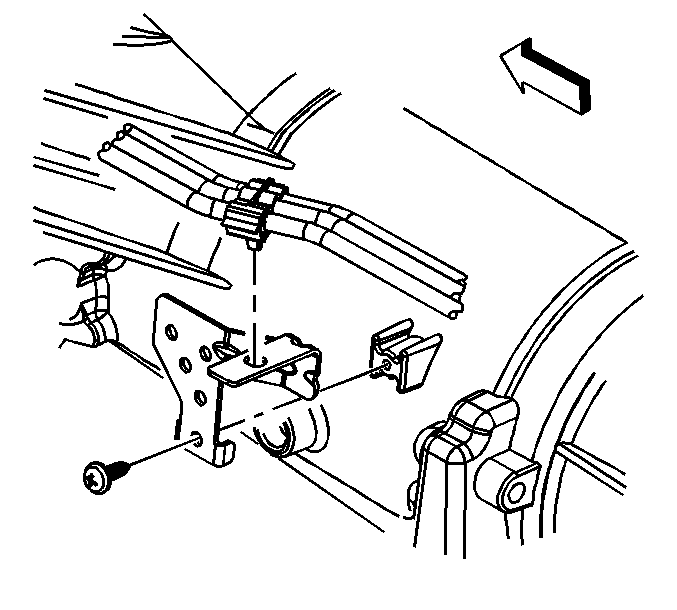
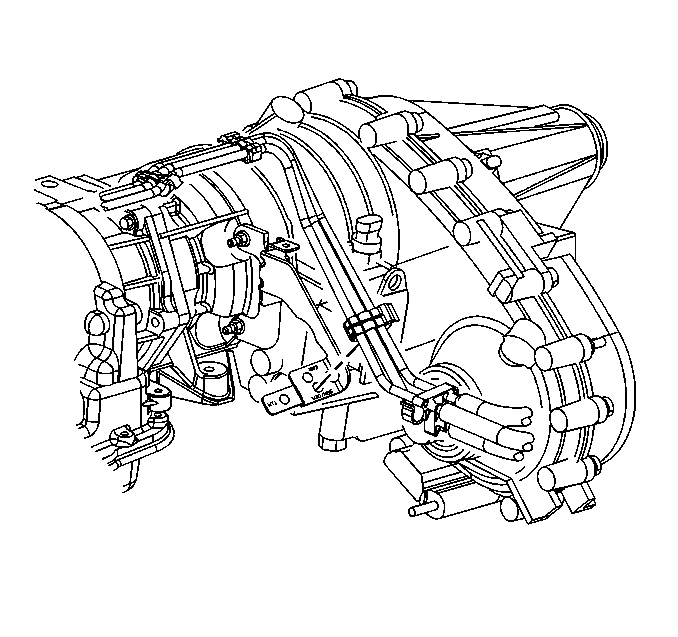
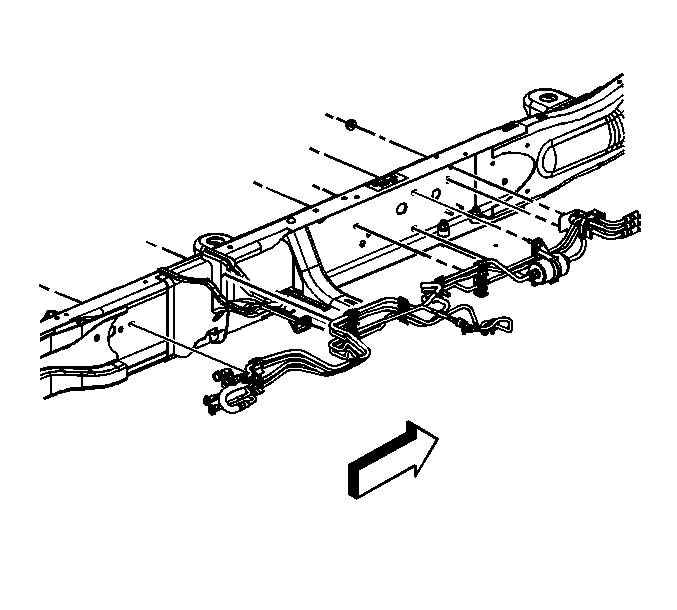
Installation Procedure
- Install the front fuel hose/pipe assembly.
- Install the fuel hose/pipe bracket nuts.
- Connect the front fuel hose/pipes to the rear fuel hose/pipes. Refer to Plastic Collar Quick Connect Fitting Service .
- Install the front fuel tank. Refer to Fuel Tank Replacement .
- If equipped 4WD, install the fuel hose/pipe clip to the bracket on the transfer case.
- Install the fuel hose/pipe clip to the bracket on the automation transmission.
- Install the fuel pipe bracket to the bellhousing stud.
- Install the fuel pipe bracket nut (2).
- Lower the vehicle.
- Remove the caps from the fuel rail and EVAP pipes.
- Connect the EVAP canister purge tube (3).
- Connect the fuel feed and return pipes (1) at the fuel rail. Refer to Metal Collar Quick Connect Fitting Service .
- Install the fuel fill cap.
- Connect the negative battery cable. Refer to Battery Negative Cable Disconnection and Connection in Engine Electrical.
- Use the following procedure in order to Inspect for leaks:

Notice: Use the correct fastener in the correct location. Replacement fasteners must be the correct part number for that application. Fasteners requiring replacement or fasteners requiring the use of thread locking compound or sealant are identified in the service procedure. Do not use paints, lubricants, or corrosion inhibitors on fasteners or fastener joint surfaces unless specified. These coatings affect fastener torque and joint clamping force and may damage the fastener. Use the correct tightening sequence and specifications when installing fasteners in order to avoid damage to parts and systems.
Tighten
Tighten the nuts to 12 N·m (106 lb in).



Tighten
Tighten the nut to 10 N·m (89 lb in).
| 15.1. | Turn the ignition ON, with the engine OFF, for 2 seconds. |
| 15.2. | Turn the ignition OFF for 10 seconds. |
| 15.3. | Turn the ignition ON, with the engine OFF. |
| 15.4. | Inspect for fuel leaks. |
Fuel Hose/Pipes Replacement - Chassis Rear Pipes
Removal Procedure
Important: Clean all the fuel pipe connections and surrounding areas before disconnecting the pipes in order to avoid possible fuel system contamination.
- Remove the front and rear fuel tanks. Refer to Fuel Tank Replacement .
- Disconnect the front fuel hoses/pipes from the rear fuel hoses/pipes (1, 2). Refer to Plastic Collar Quick Connect Fitting Service .
- Remove the fuel hose/pipe clip nut.
- Remove the fuel hoses/pipes bracket nuts.
- Remove the rear fuel hose/pipe assembly.
- Cap the EVAP/fuel pipes.
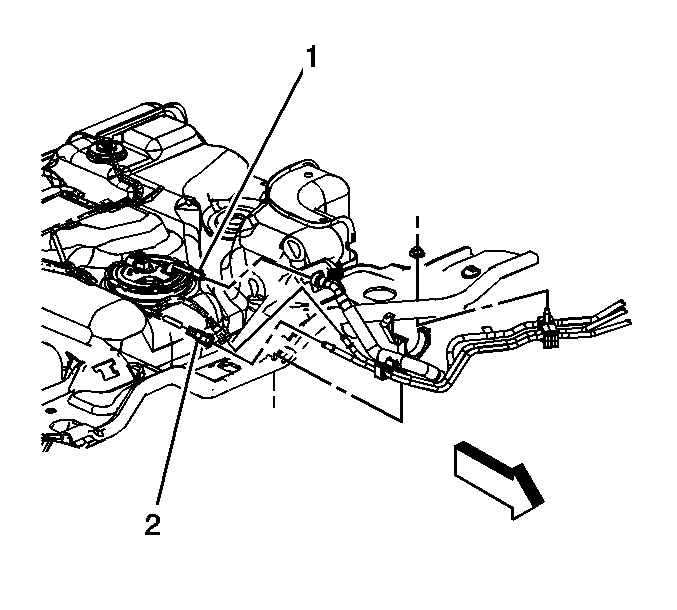
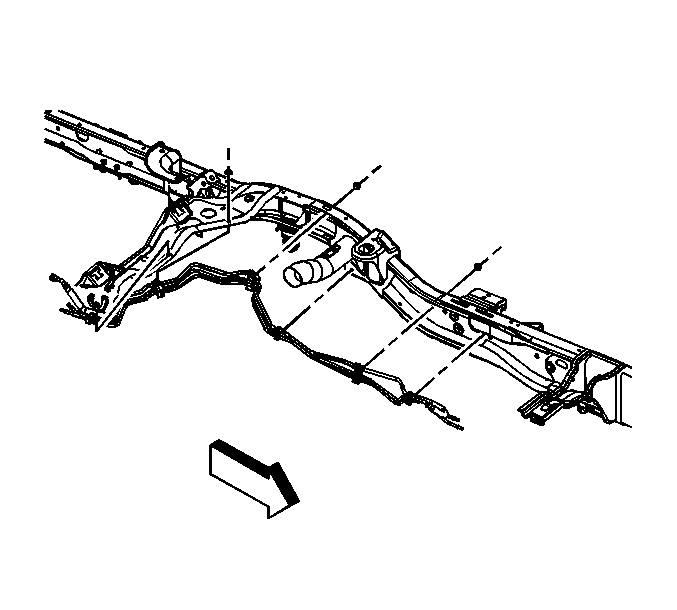
Installation Procedure
- Remove the caps from the EVAP/fuel pipes.
- Install the rear fuel hose/pipe assembly.
- Install the fuel hoses/pipes bracket nuts.
- Install the fuel hose/pipe clip nut.
- Connect the front fuel hoses/pipes to the rear fuel hoses/pipes (1, 2). Refer to Plastic Collar Quick Connect Fitting Service .
- Install the front and rear fuel tanks. Refer to Fuel Tank Replacement .

Notice: Use the correct fastener in the correct location. Replacement fasteners must be the correct part number for that application. Fasteners requiring replacement or fasteners requiring the use of thread locking compound or sealant are identified in the service procedure. Do not use paints, lubricants, or corrosion inhibitors on fasteners or fastener joint surfaces unless specified. These coatings affect fastener torque and joint clamping force and may damage the fastener. Use the correct tightening sequence and specifications when installing fasteners in order to avoid damage to parts and systems.
Tighten
Tighten the nuts to 12 N·m (106 lb in).

